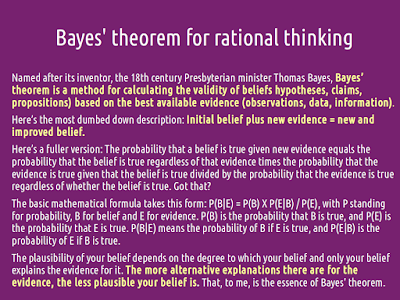In the age of the internet, what to memorize and what not?
There is a heated discussion about why remember facts when all information is at fingertips (through the internet)?.
So first look at dictionary what a fact is?
The first definition that comes up is this:
A thing that is known or proved to be true.
Ok, but most things we study in our education are facts.
Earth revolves around the sun is a fact.
New Delhi is the capital of India is a fact.
Hitler born on dated 20 April 1889 is a fact.
Independence day of India is 15th August is a fact.
Out of these, first two and last one, I needn't have to search the internet, because these facts are very important to me as I live in India, and I am from Earth (Lol). I searched the internet to find out when Hilter was born because his date of birth was irrelevant for me till now. Maybe I will forget his date of birth after one day because it will not come to any use to me later.
So, some facts are very important to memorize while others are not. Then what to memorize and what not? In the age of the internet, not only all information are in fingertips, but also the humongous amount of facts.
Can we remember all these facts? Of course not, we have a limited amount of memory to store. Brain capacity is limited.
So, it's important to choose what to keep it in memory and what not?
We needn't have to memorize:
What is non-concrete information?
Why we face difficulty to remember non-concrete information?
For a 5 year kid, A-Z alphabets is a non-concrete information but do (s)he needs to memorize it. Yes, because, alphabets are something that she will use it often, every time. So is true for multiplication table.
But do the kid has to learn 34 multiplication table? Why not? Even that is useful.
Because it will take too much of effort to memorize so much of multiplication tables. If we give all this burden, he will only learn tables and nothing else in life.
We do specialization instead of learning everything because we can't be a jack of all trades.
If you spend all time in memorizing shortcut formulas of physics, when will you strategize to solve the problems? Formulas are easily available on the internet or book, but learning how to use it more important than memorizing it.
Getting the job done that is useful is important, whether you have done it through mental computation, or through a computer doesn't matter. Yes, making computer to do things does require some mental work and prior knowledge that is stored in our memory.
So first look at dictionary what a fact is?
The first definition that comes up is this:
A thing that is known or proved to be true.
Ok, but most things we study in our education are facts.
Earth revolves around the sun is a fact.
New Delhi is the capital of India is a fact.
Hitler born on dated 20 April 1889 is a fact.
Independence day of India is 15th August is a fact.
Out of these, first two and last one, I needn't have to search the internet, because these facts are very important to me as I live in India, and I am from Earth (Lol). I searched the internet to find out when Hilter was born because his date of birth was irrelevant for me till now. Maybe I will forget his date of birth after one day because it will not come to any use to me later.
So, some facts are very important to memorize while others are not. Then what to memorize and what not? In the age of the internet, not only all information are in fingertips, but also the humongous amount of facts.
Can we remember all these facts? Of course not, we have a limited amount of memory to store. Brain capacity is limited.
So, it's important to choose what to keep it in memory and what not?
We needn't have to memorize:
Non-concrete information that takes a huge amount of effort and time to memorize, which we don't use often or will not use often in future, can be extracted or processed by the Internet or other efficient tools.
What is non-concrete information?
Why we face difficulty to remember non-concrete information?
For a 5 year kid, A-Z alphabets is a non-concrete information but do (s)he needs to memorize it. Yes, because, alphabets are something that she will use it often, every time. So is true for multiplication table.
But do the kid has to learn 34 multiplication table? Why not? Even that is useful.
Because it will take too much of effort to memorize so much of multiplication tables. If we give all this burden, he will only learn tables and nothing else in life.
We do specialization instead of learning everything because we can't be a jack of all trades.
We have to skip learning something to learn something, as we have a limited amount of memory storage and time.
If you spend all time in memorizing shortcut formulas of physics, when will you strategize to solve the problems? Formulas are easily available on the internet or book, but learning how to use it more important than memorizing it.
So, we need to prioritize what to memorize and what not as we have limited time and memory.
Getting the job done that is useful is important, whether you have done it through mental computation, or through a computer doesn't matter. Yes, making computer to do things does require some mental work and prior knowledge that is stored in our memory.









Comments